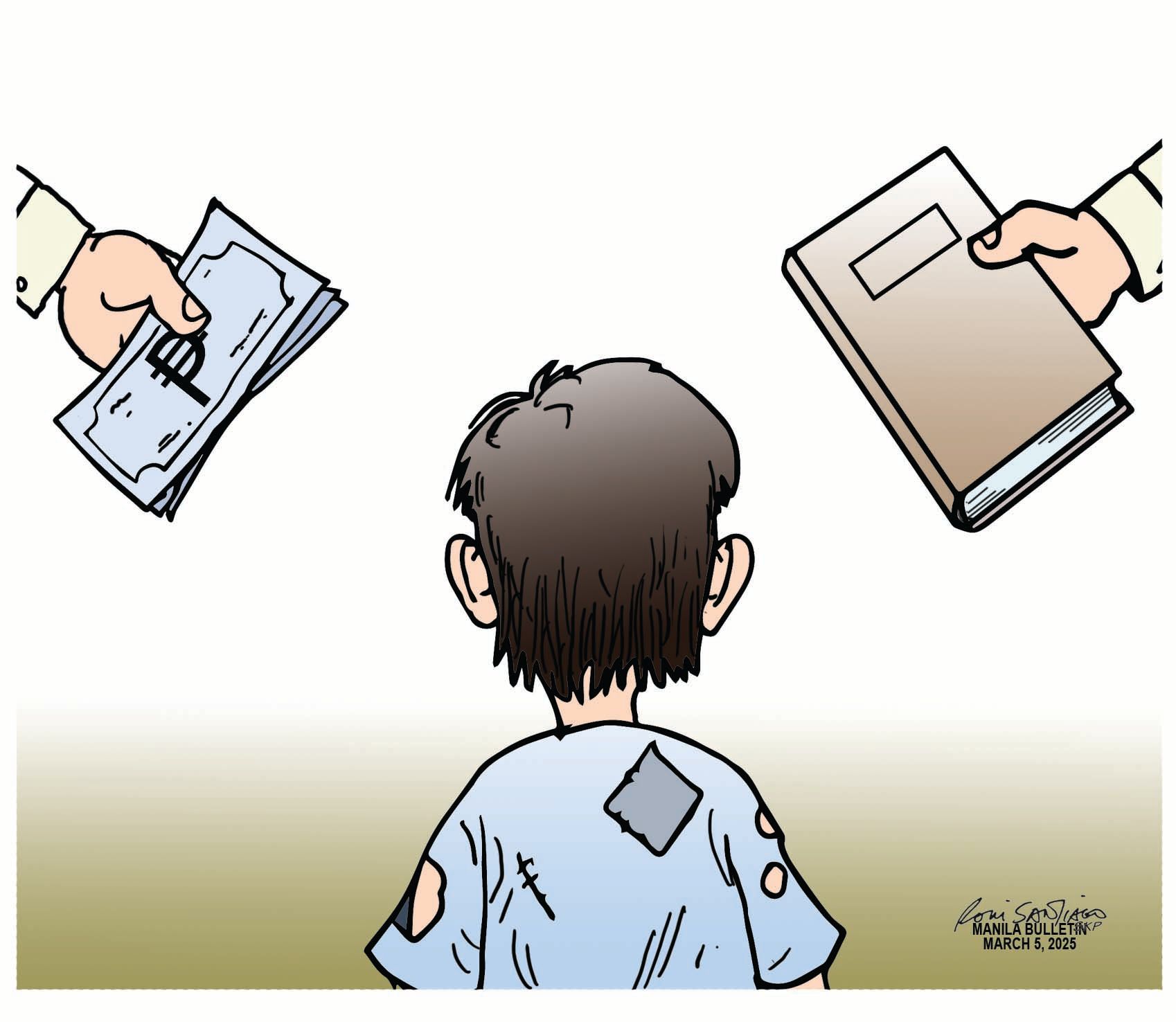
“Give a man a fish, and you feed him for a day; teach a man to fish, and you feed him for a lifetime.” This age-old Chinese proverb offers timeless wisdom on the best approach to solving persistent issues like poverty and economic inequality.
It comes to mind after some House leaders expressed their intention to further expand the government’s cash assistance programs or what is popularly known as “ayuda.” In the battle against poverty and economic instability, we often find ourselves relying on quick fixes to provide immediate relief.
Financial assistance, often in the form of cash handouts or short-term relief programs, is undeniably helpful in times of crisis. Yet, this is merely a band-aid solution. While it can provide relief, it does little to empower individuals in the long run. The real path to economic stability lies in providing people with livelihood and entrepreneurial opportunities, which cultivate self-reliance, resilience, and sustainable success.
Cash aid programs have been widely adopted around the world, and there is no question they offer immediate relief. In the aftermath of natural disasters or during economic downturns, financial assistance can help people meet their basic needs, such as food, shelter, and healthcare. However, this support is often short-lived, and once the funds are depleted, the beneficiaries return to the same cycle of dependency, facing the same struggles they did before.
The problem with financial assistance lies in its tendency to foster dependency rather than self-sufficiency. When individuals rely on government handouts or charity, they are not empowered to break free from their economic challenges. Instead of learning to overcome obstacles or develop skills that lead to long-term growth, they become reliant on external support, which only delays their progress.
What’s worse is that it has been used, wittingly or unwittingly, as a political tool to keep beneficiaries indebted to proponents of the program or to whoever is behind its distribution.
To break this cycle of poverty, it is crucial to provide individuals with the tools they need to succeed—skills, training, and entrepreneurial opportunities. By fostering a culture of self-reliance, we give people the ability to create their own wealth and solve their problems in sustainable ways. This approach is far more effective and long-lasting than a continuous stream of financial aid.
One key aspect of this solution is entrepreneurship. Encouraging and assisting individuals to start their own businesses or engage in income-generating activities can create lasting change in their lives and their communities. When people have access to resources like training, capital, and mentorship, they can turn their ideas into viable businesses that do not only provide them with a steady income but also create jobs for others. This approach helps to build a thriving local economy that benefits everyone, rather than merely giving individuals a temporary lifeline that does little to address the root causes of their struggles.
Moreover, promoting entrepreneurship fosters innovation and creativity. Individuals who can adapt, innovate, and solve problems are more likely to succeed. By equipping people with the right skills, whether through vocational training, business development programs, or access to technology, we can help them tap into their potential and drive progress in their communities. These efforts can be far more powerful in transforming lives than simply handing out money.
Furthermore, providing livelihood opportunities encourages individuals to take ownership of their future. When people are able to create value through their own efforts, they gain a sense of pride and accomplishment that goes beyond mere survival. This empowerment builds confidence and self-esteem, enabling them to face future challenges with a sense of agency and hope.